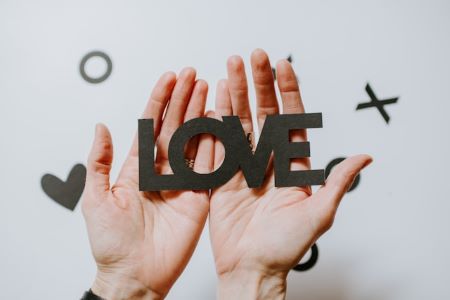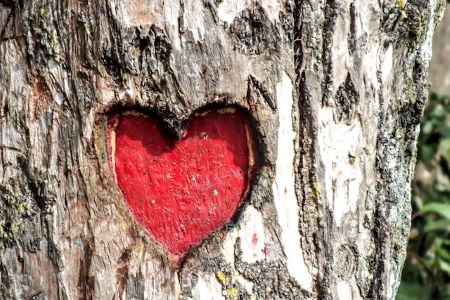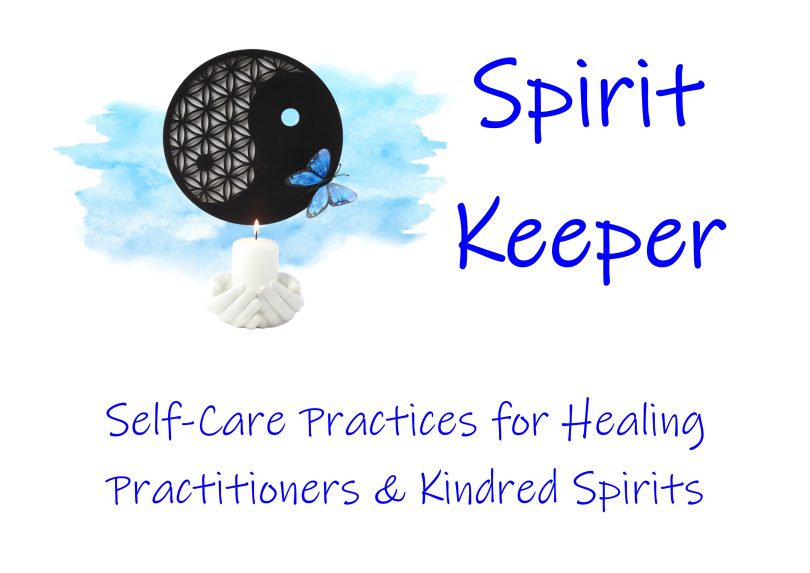Welcome, to Health & Wellbeing Magazine’s Spirit Keeper monthly column. This is the place where you will discover tips and practices for creating, developing and maintaining a personalised self-care practice.
If you are new to this month’s Spirit Keeper column, I recommend reading past articles to find out what a spirit keeper is and subjects already covered around self-care practices.
In this month’s column, we are going to look at the meaning of love, love languages, getting and protective behaviours and how these impact whether a person, nature or Mother Earth feel loved by you.
What is Love?
The problem with the definition of love is that it simply doesn’t have a definitive definition. Ask 100 people what love is and you will get 100 different answers. The love the world’s major religions talk about is ‘unconditional love’.

This unconditional love is about caring about the happiness of another individual without wanting anything in return. It is also about being accepted for who one is. Acceptance when it comes to unconditional love is about feeling seen and heard as an individual.
Unconditional love arises when an individual understands the marriage of psychology and philosophy of what it means to be human. In his book, “Real Love” Greg Baer states conditional love is, “I like how you make me feel”. Unconditional love is, “I care how you feel”. Let’s investigate this further.
The Marriage of Psychology & Philosophy
I have been privileged enough to be chairperson of several voluntary organisations in my lifetime. All of them have been focused on healing and personal development. In my time as chairperson I met individuals who really challenged me as a person and I found myself going deeply into wounded child and victim thinking and behavioural patterns.
I finally decided that the only way to really handle this was to study and do a doctorate programme from the angle of various religions and therapeutic interventions arising from spiritual practices. My studies introduced me to the marriage of psychology and philosophy. The world’s major religions are all based on the marriage of psychology and philosophy.
Psychology and philosophy are two distinct fields of study and yet are also interconnected and interdependent complementary fields which contribute to our understanding of the human experience. While they both seek to understand the human experience, they approach it from different perspectives and use different methodologies. .
Psychology
Psychology is the scientific study of the mind and behaviour. It focuses on understanding how individuals think, feel, and behave in various contexts. Psychologists use empirical methods, such as experiments, observations, and surveys, to gather data and test hypotheses.
Philosophy
Philosophy, on the other hand, is the study of fundamental questions about existence, knowledge, values, reason, mind, and language. It explores broad concepts and abstract ideas, often through critical thinking, logical reasoning, and conceptual analysis.
My World Is a Reflection Of My Thinking & Beliefs
Both psychology and philosophy state how I experience the world is dependent on how I choose to ‘react’ to the signals being communicated to me from people, my environment and worldwide events. Very simply, my response is a choice and I am responsible for the meaning I create within my mind (thinking, beliefs and emotional states).
For many individuals seeking love, they have not yet understood their external reality is a reflection of their thinking, beliefs and emotional states. I found this initially challenging and unsettling. However, I decided the best way to deal with my own feelings of not feeling loved was to investigate my thoughts, my beliefs and behaviours head on and to question the meaning I had attributed to the concept of love.
My studies revealed to me I did not see the world as it is, instead I saw the world as I am. Psychology and philosophy supported this concept. The great news is, how I am today does not need to remain how I choose to be in the future.

Learning About The Language of Love
Love within my family unit was complicated where I was concerned. As a young child I was considered a difficult child by my parents, so much so they consulted a child psychologist when I was 6 years old. My siblings have told me my words and behaviours destroyed many a family occasion. I had a couple of disastrous attempts at being in a relationship with a significant other as a late teenager and mid-30s adult. The only relationships which seemed to work for me as a child and into adulthood were friendships.
After a particularly traumatic family event in 1979, I chose not to have children in this lifetime. However, at the end of 2009, I had the thought I would be all alone once my parents had died and because I am not in regular contact with my siblings. As I had this thought I experienced an overwhelming feeling of being lonely.
By 2010 I had been involved in personal development and healing (spiritual and complementary) for 17 years. I took this experience of feeling lonely to pause and reflect on the concept of love. On reflection, my family relationships left me feeling desperate to experience love and yet it seemed so elusive to me.
Reflection of my relationships has shown me I approached love from the wounded child and victim archetypal behaviours and thinking. As stated above, I decided the best way to deal with my own feelings of not feeling loved was to investigate my thoughts, my beliefs and behaviours head on and question the meaning I had attributed to the concept of love.
I embarked on a one-year journey to really investigate my inner self and what it means to love, be loving and receive love. I started from a base line of:
- Being unclear on what love is and or isn’t.
- Incapable of feeling loved by family members and significant others.
- Unable to take self response-ability for my interpretation of other’s words and behaviours.
The book I purchased for this inner journey was entitled, “Calling in the One” by Kathryn Woodward Thomas.
This book had the title of looking for a partner, however, it was in fact a personal journey into the meaning of love and how an individual perceives love. I buddied up with a good friend and we went through the exercises diligently and holding each other accountable. Whilst investigating my beliefs about what love meant to me, I stumbled across the idea that love is communicated through behaviours and words. How I interpreted love was based on how I interpreted behaviours and words from my family, friends and community.
This lead to me reading a secondary book in that year-long investigation entitled “The 5 Love Languages” by Gary Chapman. Discovering the 5 love languages was revelatory because I learnt humans do not interpret love the same way. They are:
- Words of affirmation (verbal compliments and statements of appreciation)
- Quality time (focused attention and quality conversation)
- Physical touch (from putting a hand on one’s shoulder to intercourse)
- Acts of service (doing favours for one another)
- Receiving gifts (tangible gifts and physical symbols of love)
This led to further reading and study of a book called “Real Love” by Greg Baer in which I discovered how when individuals seek love they are either acting out protective behaviours or getting behaviours. Greg Baer states, our expression of love is often an expression of expectation. Therefore, if we feel let down (by parents, partner, friends, colleagues) and become disappointed, feel anger and irritation, this only demonstrates the conditional nature of how we perceive love.
This book really highlighted how I was either trying to get love from others when communicating or trying to protect myself from being hurt by others during communication. Getting and protective behaviours look like this:

My investigation into the concept of love, loving and receiving love brought up a further book entitled “The New Intimacy – Discovering the Magic at the Heart of Your Differences” by Judith Sherven and James Sniechowski. This book showed me the power of using differences to deepen the experience of love in relationship.
These 4 books and year-long study into the subject of love totally transformed my understanding of love and my perception of what love is. It helped to explain why I did not feel loved by family. Very simply each of us as individuals feel love through different words and behaviours; and most importantly the meaning we gave those words and behaviours differed widely due to our personal ‘lens of perception’.
My studies demonstrated if you want to experience love, then you yourself need to be loving. If you want to experience receiving love, you need to be able to make others feel loved. If you want to experience being love as the world religions describe it, then you need to question your thinking, behaviours and emotional responses at every moment, so you can be unconditional and accepting of another’s differing perceptions and traditions.
My investigation and studies demonstrated to me what psychology and philosophy have said for aeons, which is: you cannot experience the thing you desire most until you yourself are embodying the thinking, behaviours and emotional states which ‘create’ it.

Results from Year Long Study Into Love
The end result of that year long study and investigation:
- I had a stronger sense of self and my self-worth was vastly improved.
- I was clearer on what my love languages were in order of preference and to start looking for clues in how others around me expressed the 5 love languages and to use this knowledge to communicate with them.
- I was able to understand others don’t make me happy; happiness is something I choose at every moment by being aware of my thinking, behaviours and emotional states.
- I met my husband on the 13th April 2011, just over 3 months after completing the year-long study.
My biggest take away from that year-long study was finally understanding my family members, friends, colleagues and humanity are individuals all seeking to be loved as much as myself. They have different love language preferences to myself and they too use protective and getting behaviours to get love from others or protect themselves from being hurt. They too do not see the world as it is instead they see the world through their own thinking, beliefs and emotional states.
Summary
February being the month of ‘love’ commercially is a great opportunity for individuals aspiring to be Spirit Keepers to check in on their thinking, beliefs and behaviours around the concept of love.

Our modern world prioritises individual success through metrics of: wealth, status, and power, as indicators of value. I am not saying, these achievements do not drive progress and innovation, they do. However, these measurements of success often neglect the emotional, social, and environmental well-being of the individual, communities and the planet as a whole. There is a rapidly growing need as at 2025 for roles and qualities which foster connection, empathy, and sustainability within an individual, community and planetary systems. Spirit Keepers are an excellent source of grounding these qualities into the thought, emotional and other fields on and around Mother Earth.
I recently saw an excellent Instagram post which talked about the importance of Healers, Peacemakers, Restorers and Storytellers. A Spirit Keeper embodies all of these characteristics because they offer humanity ‘love, acceptance and understanding’ through the roles of being a healer, peacemaker, restorer and story teller.
- The time of the wounded healer is drawing to a close. The new healers on the block are now integrative or holistic in approach and application. They address psycho-social wounds, emotional dysregulation and physical dis-ease. Healers as spirit keepers will play a critical role in fostering wholeness, courage, resilience and persistence in individuals and communities.
- Peacemakers are individuals who have embodied the lessons of life on their own healing journey and their work addresses political-social division and polarisation. Spirit keepers by mastering their own healing journey enables them to act as negotiators to help individuals and communities resolve conflicts and bridge divide which hinder collective progress. They are instrumental in creating harmonious environments where people and nature thrive together.
- Restorers are individuals who are able to view the micro and macro perspectives of life at the same time. They are also dialectical thinkers with the ability to hold two or more opposing ideas at the same time. Restorers will focus on repairing that which is broken or falling apart, whether it is cultural heritage, ecosystems or relationships. Spirit keepers are keen to restore wholeness and through their way of living and being a healing facilitator, they promote the interconnectedness of all life, interdependence of life and willingness to embody the wisdom of the ages.
- Spirit keepers who are storytellers preserve the wisdom of higher conscious awareness for humanity, nature and Mother Earth. Story telling preserves the wisdom shared by nature and humanity through traditions and direct experiences of being healers, peacemakers and restorers. Story tellers are able to use words and pictures to build empathy, educate and inspire individuals to become the change they wish to see in the world. Their stories help to build understanding of different perspectives and commonly shared ones of what it means to be human and a guardian of nature and Mother Earth. Their stories talk about how humanity through the 5 love languages and multiple archetypal behaviours and thinking can create a more compassionate and supportive world.
When it comes to love, Spirit Keepers, live more in the present than they do in the past or future. Very simply because it is in the present moment that allows them to feel connected to the Divine and to experience the ‘magic and miracles’ of accepting what is.
Spirit Keepers choose to become the change they wish to see in the world because this enables them to create, develop and promote a way of living which prioritizes the collective good of humanity, nature and Mother Earth, which is love in action.
Spirit Keepers who embody the roles of being a healer, peacemaker, restorer and storyteller help to nurture a more equitable and sustainable future for nature, humanity and Mother Earth, which is love in action.

Monthly Research Project
Discover, learn and research the order of your own 5 love languages. Read the following books to deepen your understanding of love, how to show up in relationships and why having a daily sacred self-care practice is vital for radiating love from within.
- “Calling in the One” by Kathryn Woodward Thomas.
- “The 5 Love Languages” by Gary Chapman.
- “Real Love” by Greg Baer.
- “The New Intimacy – Discovering the Magic at the Heart of Your Differences” by Judith Sherven and James Sniechowski.
Words of Wisdom
“It’s important that loving another person doesn’t take priority over listening to yourself knowing what you need.”
~ Thich Nhat Hanh, Buddhist Monk & Peace Maker
Next Month…
January’s column was about understanding how to use new year’s resolutions to embody the thinking, beliefs and behaviours of what you wish to achieve. February’s column has been about encouraging you to question your beliefs, behaviours and ways of communicating love. To take responsibility for the lack of feeling loved. To understand and recognise you will only feel loved when you embody the thinking, words and behaviours of how you perceive loving to be. It also encourages you to be a spirit keeper who embodies the roles of being a healer, peacemaker, restorer and storyteller. In March, we will investigate the importance of being able to experience independence and interdependence as part of the spiritual experience of being love and how this can lead to new beginnings.
Until next month. From one kindred spirit to another – be safe, be well, be authentically you.
In gratitude
Kathleen



